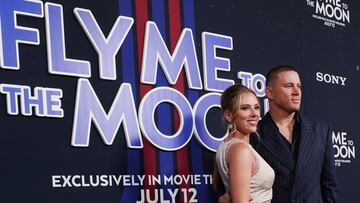Who originally made Fly Me to the Moon and what is it based on?
Fly Me to the Moon” is one of the most iconic and enduring songs in the American music repertoire, renowned for its elegant melody and romantic lyrics.


While many associate the song with legendary performers like Frank Sinatra, its origins trace back to the creative genius of composer and lyricist Bart Howard. Born Howard Joseph Gustafson, was an American composer and songwriter. He penned “Fly Me to the Moon” in 1954, originally titling it “In Other Words.” The song was first introduced to the public by cabaret singer Felicia Sanders, whose performance helped the tune gain initial recognition.
While Kaye Ballard was the first to record the song, it was Frank Sinatra’s 1964 rendition that truly cemented “Fly Me to the Moon” as a classic. Sinatra’s version, arranged by Quincy Jones, became synonymous with the song and remains one of the most beloved interpretations. Over the years, many artists have covered “Fly Me to the Moon,” each bringing their unique style to the timeless melod
What was the inspiration behind Fly Me to the Moon
The inspiration for “Fly Me to the Moon” came from a popular phrase at the time, which suggested a desire to escape or embark on an exciting journey. Howard’s lyrics reflect a romantic longing to take someone on an extraordinary adventure, capturing the essence of love and exploration. Additionally, Howard wrote the song for his partner of 58 years, Thomas Fowler, adding a personal touch to its heartfelt lyrics
Related stories
The song’s association with space exploration was cemented when astronaut Buzz Aldrin played it on a portable cassette player after landing on the moon during the Apollo 11 mission in 1969. Notable covers include versions by Tony Bennett, Diana Krall, and more recently, the Japanese virtual singer Hatsune Miku, demonstrating the song’s cross-generational and cross-cultural resonance
#FlyMeToTheMoon is everything you want from a summer movie – and so much more.
— Fly Me To The Moon (@FlyMeMovie) July 11, 2024
Scarlett Johansson and Channing Tatum star in the year’s best rom-com – now playing exclusively in theaters. Get tickets: https://t.co/4Qmljg0dAL pic.twitter.com/e2Wvy4AnXt
Fly Me to the Moon” is a testament to the enduring power of music to capture the imagination and express profound emotions. Bart Howard’s composition has transcended its origins to become a beloved standard, continually reinterpreted by artists worldwide.


Complete your personal details to comment